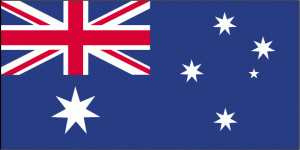by Jeff Fleischer
(Mother Jones, July 23, 2004)
Yesterday, Australians heard the results of an investigation into the performance of their country’s intelligence agencies. The findings–and the official spin that greeted them–had a familiar ring.
As with the recently released U.S. Senate report into American intel on Iraq, the report compiled by Philip Flood found the country used “thin, ambiguous and incomplete” intelligence to justify last year’s war. And as with the U.S. report, both the government and the opposition — locked in a competitive election cycle — tried to spin the findings to their own advantage.
Prime Minister John Howard appointed Flood to conduct the inquiry on March 4, instructing the former intelligence officer and ex-diplomat to examine flaws in the country’s six intelligence agencies and propose solutions. The report he produced found that while Howard’s government did not explicitly pressure intelligence agencies to make the case for the Iraq war, it did undertake the conflict on flimsy evidence:
“There was little by way of hard current intelligence available to analysts across the range of WMD capability issues, although the intelligence on Iraq’s efforts to deceive inspectors was clearer. Much of the information that was available was equivocal or of uncertain validity. A good deal of it was either reporting of dual-use acquisition activity, inherently difficult to interpret, or human intelligence of uncertain sourcing and reliability. The weakness of the intelligence picture on Iraq was in part due to inadequate collection…
“[The intelligence agencies] ONA and DIO, along with the rest of the international community, failed to judge accurately the extent and nature of Iraq’s WMD programs. And both agencies’ assessments about Saddam’s intent and capacity to use WMD against U.S. forces, or against those countries who allowed their territory to be used by the U.S. in the event of a U.S.-led invasion, were not borne out.”
Just as the Sept. 11 commission declined to blame either the Bush or Clinton administrations for intelligence failings, the Flood report took pains not to blame the government. It credited Australian intelligence as “on the whole more cautious” in its assessments than U.S. or UK agencies, while acknowledging the difficulties in obtaining credible information about Iraqi weapons:
“In outlining these systemic issues, the Inquiry acknowledges that it is doubtful that better process would have changed the fundamental judgments about the existence of WMD. At best it may have led to more qualified judgments, and the presentation to government of alternative, less likely scenarios. While the principles outlined above remain critical for the integrity and quality of future assessments, the Inquiry’s conclusion is that, based on the available intelligence and other information, ONA and DIO assessments represented reasonable and relatively cautious conclusions.”
Of course, Howard still used those “cautious conclusions” to make the public case for war and to send more than 2,000 Australian troops into Iraq. Kevin Rudd, foreign affairs spokesman for the opposition Labor Party –- which currently leads the Howard government in polls — said the report validates his party’s charge that “there was no plausible intelligence basis upon which John Howard took Australia to war in Iraq.” Andrew Wilkie, the former ONA officer who resigned in protest over the war, told the Sydney Morning Herald, “The report confirms again that there was a limited intelligence failure over Iraq, and that there is a genuine need for reform within the Australian intelligence community.” The Canberra Times echoed those sentiments in a Friday editorial:
“If [intelligence agencies] expressed any doubts or qualifications about whether the material presented evidence of a clear and present danger to Australia’s national security (which ought to be an intelligence agency conclusion as much as a conclusion for politicians) it is not something covered in the sanitized report. If our intelligence establishment had doubts or qualifications, Australians were not told of them.
“The Prime Minister, John Howard, and his Minister for Foreign Affairs, Alexander Downer, and other members of the Cabinet were content to use publicly only intelligence which suited their political purposes – which was to go to war. This they had determined upon well before they began demanding intelligence assessments to back up their decision. They were interested in intelligence only for advocacy, for use in making a public case for urgent action alongside the U.S.”
Howard, naturally, saw the findings differently. He approved 22 of the report’s 23 recommendations (the exception was choosing not to rename ONA), including increased language training, a doubling of ONA’s staff and budget, and regular reviews of intelligence agencies. And he focused on Flood’s conclusion that Howard didn’t put overt political pressure on the agencies:
“Disagree with our decision, say that we were wrong, say that we were misguided, but don’t accuse us of heavying the intelligence agencies…We did not heavy the intelligence agencies, we never did, we respect their intelligence. I continue, as do my colleagues continue, therefore to reject the proposition that we took this country to war based on a lie.”
Like George Bush, Howard has seen his public support fall substantially as the war has gone on and as the public learns more about intelligence failures. And like Bush, he’s shifted his rationale for the war from “weapons of mass destruction” to the morel imperative of freeing Iraq from Hussein’s regime. While Howard maintains he didn’t lie the country into war, the Flood report again confirms he put too much stock in the “thin, ambiguous and incomplete” evidence that could lead to his political downfall.
Tags: 9/11, andrew wilkie, australia, daily mojo, flood report, intelligence, jeff fleischer, john howard, mother jones